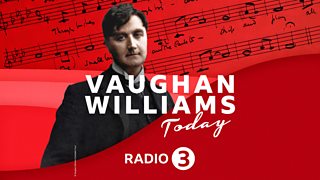
Episode 4
Donald Macleod focuses on the work of Rachmaninov (The Miserly Knight), Stravinsky (The Nightingale and Mavra) and Prokofiev (The Love for Three Oranges).
Donald Macleod continues his exploration of the rich tradition of Russian opera from Glinka to Schnittke with a musical conservative - Sergei Rachmaninov - and a pair of progressives - Igor Stravinsky and Sergei Prokofiev. One of only three operas completed by Rachmaninov, The Miserly Knight sets one of Pushkin's four Little Tragedies, in a tradition stretching back to Alexander Darghomïzhsky's The Stone Guest. Stravinsky's opera The Nightingale is an attractive but rather strange work. Stravinsky wrote the first act in 1909, then broke off to fulfil what turned out to be a trio of ballet commissions, for The Firebird, Petrushka and The Rite of Spring. When he returned to The Nightingale in 1914 - with the incentive of a fat commission fee from the Moscow Free Theatre - his style had undergone a radical transformation. It had changed again by 1922 when he started work on his next opera, Mavra, which stands at the beginning of his neo-classical phase. After a somewhat shaky start - the composer compared the critics at the New York première to a "pack of dogs let out from behind the gate to bite my trousers to shreds" - Prokofiev's The Love for Three Oranges has gone on to become one of his best-loved works, a delightfully absurd confection in which a hypochondriac prince finds the love of his life inside an enchanted orange - and why not.
Last on
More episodes
Previous
Music Played
-
![]()
Igor Stravinsky
The Nightingale (1914) - extract from Act 2
Performer: Phyllis Bryn Julson (The Nightingale - soprano), ���˿��� Symphony Orchestra, Pierre Boulez (conductor)
- Erato 2292-45627-2.
-
![]()
Sergey Rachmaninov
The Miserly Knight (1904)
Performer: Mikhail Guzhov (The Baron - bass), Russian State Symphony Orchestra, Valeri Polyansky (conductor)
- Chandos CHAN 10264.
-
![]()
Igor Stravinsky
The Nightingale (1914) - extract from Act 2
Performer: John Tomlinson (Chamberlain - bass), Nightingale (Phyllis Bryn Julson - soprano), Neil Howlett (Emperor - baritone), Ian Kennedy (1st Japanese envoy - tenor), Gareth Roberts (2nd Japanese envoy - tenor), Brindley Sherratt (3rd Japanese envoy - bass), Ian Caley (Fisherman - tenor), ���˿��� Singers, ���˿��� Symphony Orchestra, Pierre Boulez (conductor)
- Erato 2292-45627-2.
-
![]()
Igor Stravinsky
Mavra (1922) - extract
Performer: Mary Simmons (Mother - mezzo-soprano), Patricia Rideout (Neighbour - contralto), Susan Belinck (Parasha - soprano), Stanley Kolk (Cook - tenor), CBC Symphony Orchestra, Igor Stravinsky (conductor)
- Sony 88697103112-14.
-
![]()
Sergey Prokofiev
The Love for Three Oranges, op.33 (1919)
Performer: Evgeny Akimov (Prince), Anna Netrebko (Princess Ninetta), Larissa Shevchenko (Fata Morgana), Mikhail Kit (The King of Clubs), Olga Korzhenskaya (Smereldina), Alexander Morozov (Leander), Kirov Chorus and Orchestra, St Petersburg, Valery Gergiev (conductor)
- Philips 462 913-2.
Broadcast
- Thu 30 Dec 2010 12:00���˿��� Radio 3
Vaughan Williams Today
Beethoven Unleashed – the box set
What was really wrong with Beethoven?
Composers A to Z
Who knew? Five eye-opening stories from Composer of the Week
Five reasons why we love Parry's Jerusalem
What is the strange power of Jerusalem which makes strong men weep?
A man out of time – why Parry's music and ideas were at odds with his image...
The composer of Jerusalem was very far from the conservative figure his image suggests.
Composer Help Page
Find resources and contacts for composers from within the classical music industry.






